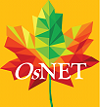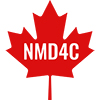CIHR-IMHA Research Catalyst Networks
The following 6 networks of researchers were awarded funding by IMHA and partners after rigorous peer-review. These Catalyst Networks consist of researchers, clinicians, and patient partners who aim to improve the health of Canadians in these domains: skin health, oral health, musculoskeletal health, muscular dystrophy, and myalgic encephalomyelitis.
- Canadian MSK Rehab Research Network
- Interdisciplinary Canadian Collaborative Myalgic Encephalomyelitis Research Network (ICanCME)
- Network for Canadian Oral Health Research (NCOHR)
- OsNET: The Canadian Bone Health Research Network
- The Neuromuscular Disease Network for Canada (NMD4C)
- Skin Investigation Network of Canada (SkIN Canada)
Canadian MSK Rehab Research Network

Nominated Principal Investigator: Dr. Joy MacDermid
Host Institution: Western University (London, Ontario)
The Canadian Musculoskeletal (MSK) Rehabilitation Research Network is an inclusive national network that facilitates collaborative transdisciplinary discovery, innovation, and clinical research to provide solutions to key research questions and care gaps in MSK rehabilitation. With its focus areas in pain, mobility and work participation, this Network supports an innovation pipeline for novel MSK rehab interventions to address the large pain and disability burden caused by bone, joint, muscle, and nerve problems.
Launched in 2016, the Network brought together 80 researchers, collaborators and knowledge users, and 20 partners/consumer groups. It built innovative funding and learning opportunities for trainees, and research platforms that allowed the Network to share clinical and biomechanical data nationally. Now, having grown to over 140 members in 2020, the Network is linking MSK research-intensive clinical centres and patient groups who will guide and develop large-scale national studies to create and disseminate new knowledge using the capacity and expertise of our collaborative members.
Objectives and Priority Areas:
- Patient Engagement - All network activities include engaged patients/knowledge users to: 1) play key roles in priority setting, 2) influence decisions on review panels, and 3) act as Co-Investigators on all projects.
- Relationship-building - 1) leverage partnerships to co-host meetings with longstanding national and international mobility and rehab conferences; 2) create and foster an online community of practice platform on challenges/solutions in rehab research; 3) launch a cross-institutional mentorship program within the network for trainees and young investigators; and 4) execute a multi-modal communication plan.
- Knowledge Translation (KT) – A knowledge translation working committee comprised of leading KT experts and knowledge users advises the Network’s executive committee and helps guide all KT and dissemination initiatives. Key partner organizations such as The Arthritis Society and Ontario Physiotherapy Association, along with infrastructure partnerships such as McMaster’s Rehab+ platform further increase impact of research outcomes.
- Training – The Network continues to build on its success with successful training initiatives such as: 1) online training modules, 2) targeted funding competitions, 3) research exchanges, 4) mentored peer reviewers on grant panels and committees, and 5) trainee events, collaborative summer schools, and online forums.
Twitter: @MSKrehabnet
Interdisciplinary Canadian Collaborative Myalgic Encephalomyelitis Research Network (ICanCME)

Nominated Principal Investigator: Dr. Alain Moreau
Host Institution: Sainte-Justine University Hospital Centre (Montreal, Quebec)
Myalgic encephalomyelitis (ME), formerly known as chronic fatigue syndrome (CFS) and often still referred to as ME/CFS, is a devastating, chronic, complex, multi-system disease that afflicts approximately 600,000 Canadians, 2.5 million people in the United States and millions more globally. ME is found in children, adolescents and adults of all ages. The name ME stands for muscle pain (myalgic) and inflammation of the brain and spinal cord (encephalomyelitis).
The Interdisciplinary Canadian Collaborative Myalgic Encephalomyelitis (ICanCME) Research Network is a national network of researchers, clinicians, and patient partners to advance the understanding and development of clinical approaches in ME. The Network focuses on creating new knowledge to decipher the ME enigma and translate it into tools and health solutions that impact both human health and society. By leveraging collective knowledge, important health data, and pockets of innovation, ICanCME will contribute to initiating the transformation of the ME research landscape in Canada, and improve the health of Canadians living with ME.
Objectives and Priority Areas:
- Build a catalyst accelerator program to fill existing gaps in ME research, stimulate new discoveries, and sustain excellence in ME research in Canada.
- Develop sustainable research infrastructure into ME and implement, integrate and standardize databases and bio-banking procedures.
- Develop talent to enhance ME research capacity and excellence in research.
Twitter: @ICanCMEResearch
Network for Canadian Oral Health Research (NCOHR)

Nominated Principal Investigator: Ana Miriam Velly
Host Institution: Lady Davis Institute for Medical Research (Montreal, Quebec)
The vision of the Network for Canadian Oral Health Research (NCOHR) is to be the primary resource for initiating, supporting, and sustaining innovative and collaborative oral health research designed to benefit the health of all Canadians.
Launched in 2012, NCOHR is an inclusive network that aligns clinical, research, and academic collaborations and infrastructures within the Canadian oral health research community. The network has grown to nearly 900 members nationwide, including researchers, trainees, oral health professionals, patient representatives, and industry.
Objectives and Priority Areas:
NCOHR has created an integrative and innovative framework to generate oral health benefits through three strategic aims:
- To foster talent development and enhance the training experience.
- To create and support collaborative research teams.
- To mobilize knowledge in emerging fields of science and promising technologies.
Webpage: NCOHR will launch a redesigned website and logo in late 2023.
Twitter: @NCOHR
Facebook: @NCOHR.RCRSB
OsNET: The Canadian Bone Health Research Network

Nominated Principal Investigator: Steven Boyd
Host Institution: University of Calgary
Bone is a critical part of our musculoskeletal system and optimizing its health across the lifespan is key to ensuring a high quality of life for Canadians. Skeletal health is integral to primary bone diseases arising from childhood-onset bone disorders including osteogenesis imperfecta and osteoporosis secondary to chronic illnesses, where low bone mineral mass can lead to devastating fragility fractures. Skeletal health can also become impaired in diseases such as celiac disease, Parkinson's, diabetes, rheumatoid arthritis, spinal cord injury, cancer, and more. Fractures from osteoporosis are more common than heart attack, stroke and breast cancer combined. Although Canada has a surprisingly large number of renowned world experts in bone health research for its size, there is no formal network to connect them. We are proposing to establish OsNET (Os = bone, NET = network), which will be Canada's largest, most comprehensive structured network for scientists, clinicians, patient partners, bone organizations, and industry to communicate and work together. The aim of OsNET is to improve life-long bone health through actionable research for Canadians.
OsNET is designed to be a lasting organization poised to improve bone health through prevention, early diagnosis, and innovative therapeutics. It will promote advocacy and leadership in bone research locally, nationally, and internationally, spanning generations.
Objectives and Priority Areas:
- Establish an inclusive, diverse, and multidisciplinary network of experts, knowledge users, and patient partners.
- Generate new knowledge across the four CIHR pillars that benefit Canadians from infancy to old age.
- Provide a foundation for sharing and create resources, platforms, and establish transdisciplinary teams working to improve best practises.
- Create a mentorship environment for trainees to support career development and establish the next generation of bone health researchers in Canada.
The Neuromuscular Disease Network for Canada (NMD4C)

Nominated Principal Investigator: Dr. Hanns Lochmüller
Host Institution: CHEO Research Institute (Ottawa, Ontario)
NMD4C is a new Pan-Canadian network that brings together the country’s leading clinical, scientific, technical, and patient expertise to improve care, research, and collaboration in neuromuscular disease (NMD). Launched in January 2020, it aims to improve the care, research and treatment of NMDs for all Canadians through national and international collaboration, resource sharing, capacity building and dissemination in priority research areas. Its vision is to be a comprehensive, inclusive, open and enduring network for Canadian stakeholders to share expertise and data, collaborate on joint activities, and work together on research for the benefit of Canadian patients.
NMD4C builds on the strengths of existing national initiatives such as the Canadian Pediatric Neuromuscular Group (CPNG), the Canadian Neuromuscular Disease Registry (CNDR), Muscular Dystrophy Canada (MDC), and the former Canadian Neuromuscular Disease Network (CAN-NMD). NMD4C supports patient engagement and follows a “nothing about me without me” philosophy. Patient partners are co-leads/participants in every networking activity and a patient representative sits on the Steering Committee, governed by a MOU.
Objectives and Priority Areas:
- Formalize and sustain a network of NMD stakeholders united around a cohesive three-year work plan.
- Train and educate the next generation of NMD stakeholders (clinicians, scientists, and patient advocates).
- Raise the standard of care for NMD and access to therapies across Canada (KT and dissemination).
- Strengthen biomedical and clinical infrastructure to build research capacity in Canada.
Twitter: @NMD4Canada
Skin Investigation Network of Canada (SkIN Canada)

Nominated Principal Investigator: An-Wen Chan
Host Institution: Women’s College Hospital (Toronto, Ontario)
The vision of the Skin Investigation Network of Canada (SkIN Canada) is to catalyze and sustain innovative, patient-driven, high quality research that improves the skin health of Canadians. The Network’s mission is to advance skin research in Canada by creating a national forum, guided by patients and knowledge users, to strengthen and harmonize collaborations and capacity in the skin research community. The Network currently focuses on three areas: 1) inflammatory skin conditions; 2) wound healing, skin fibrosis, and regeneration; and 3) skin cancer. By mapping the skin research landscape, developing critical national infrastructure, and providing Team Development awards and capacity building opportunities for trainees, the Network will break down barriers and catalyze interdisciplinary collaborations.
Objectives and Priority Areas:
- Develop and strengthen national infrastructure that will empower research teams to operate with greater scale and efficiency.
- Identify priority research questions and create novel, multidisciplinary collaborations involving new teams of researchers and knowledge users.
- Grow the community of successful skin researchers by developing talent across academic ranks and training levels.
- Date modified: